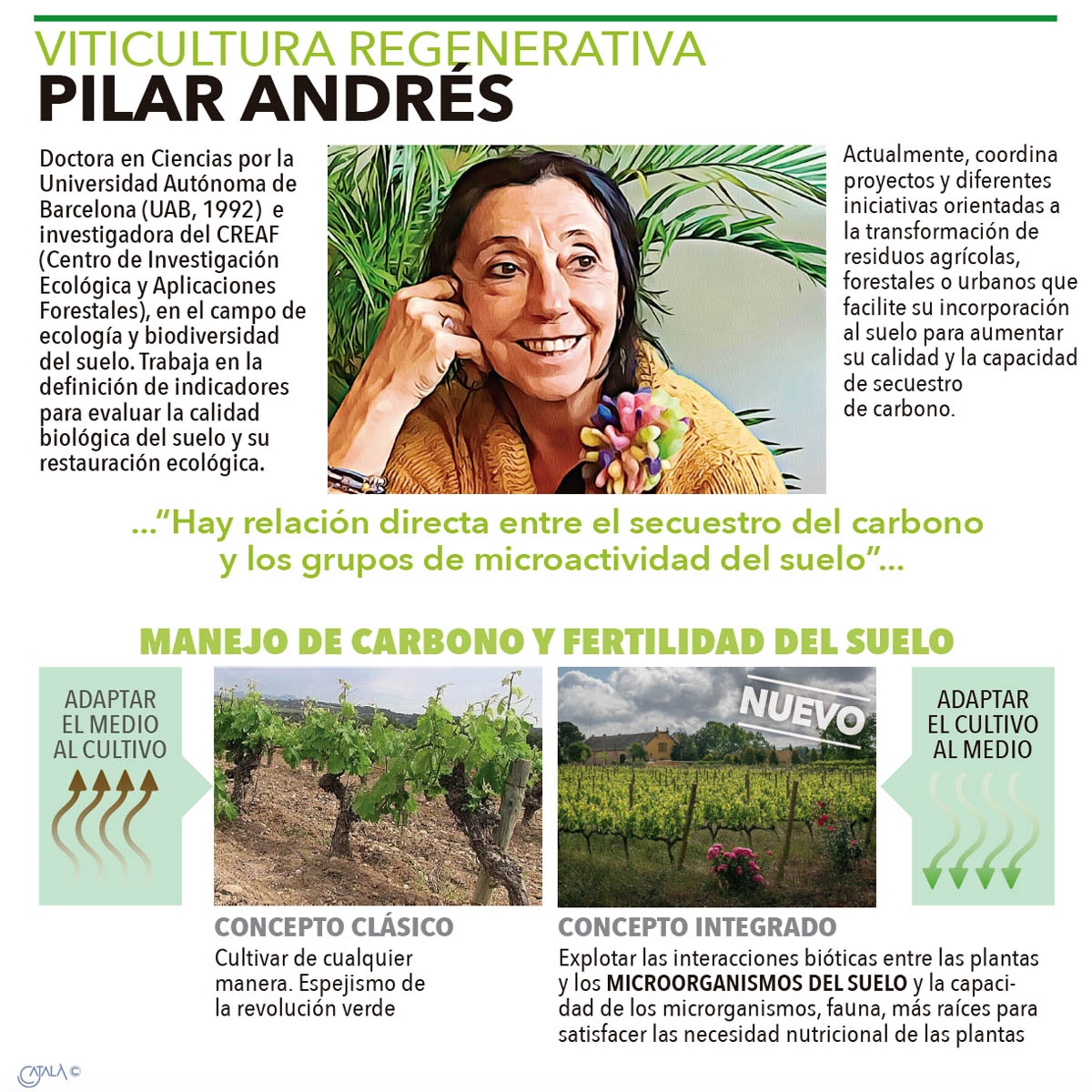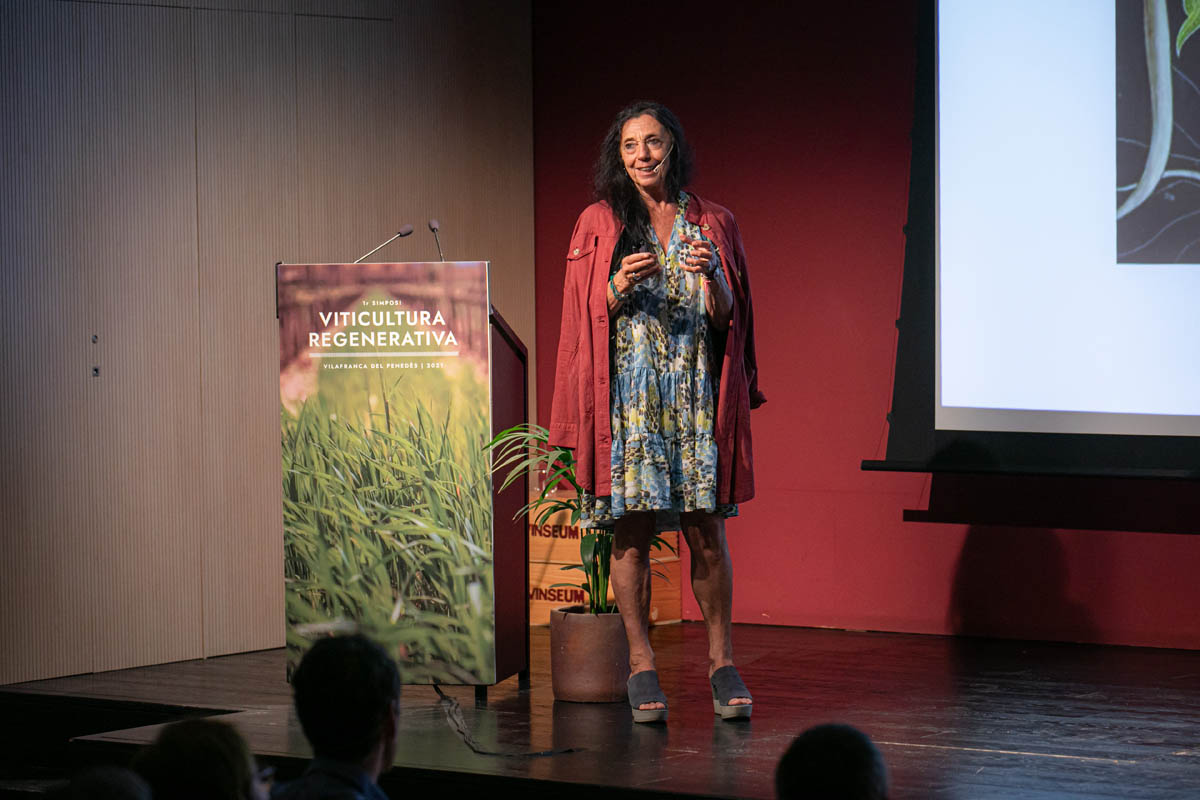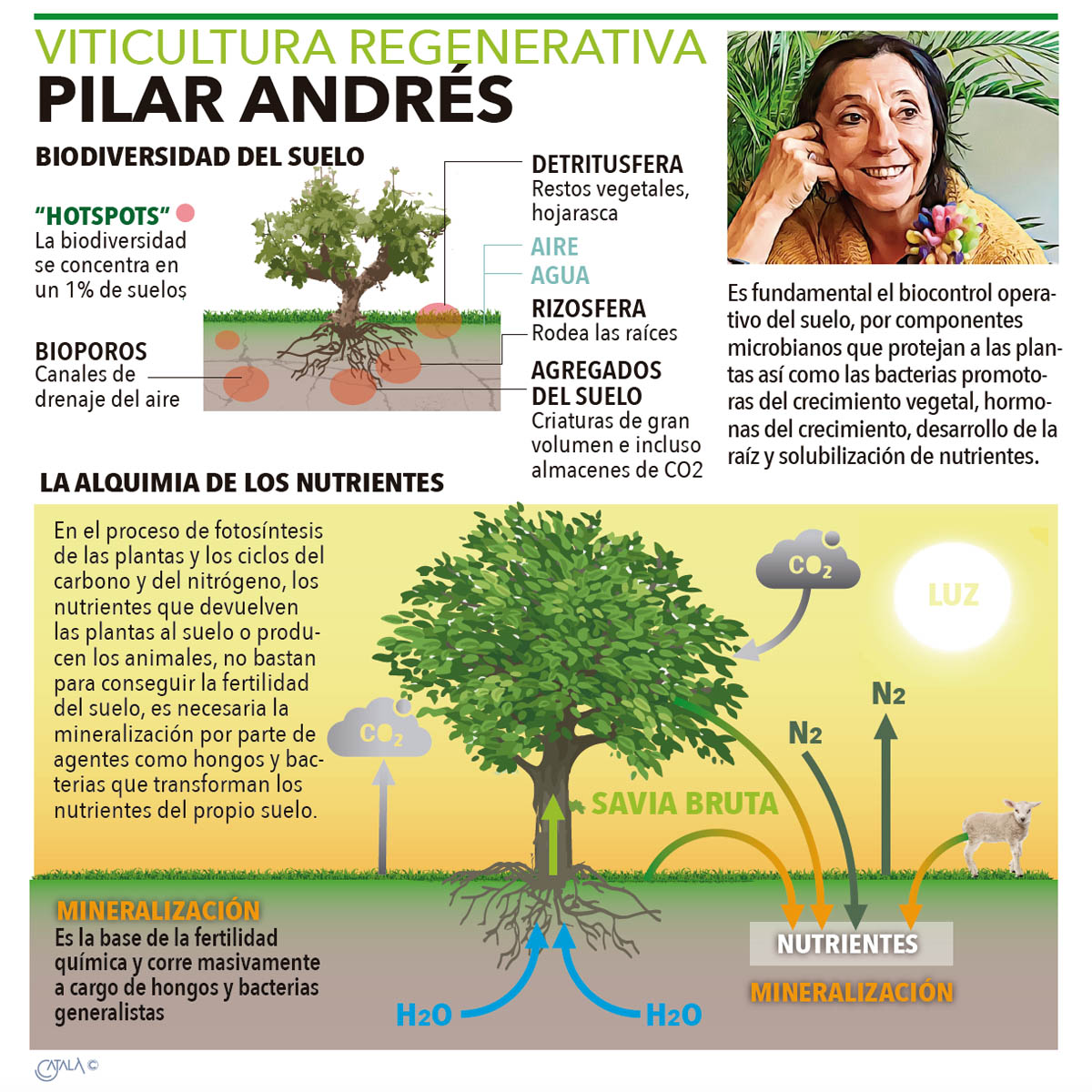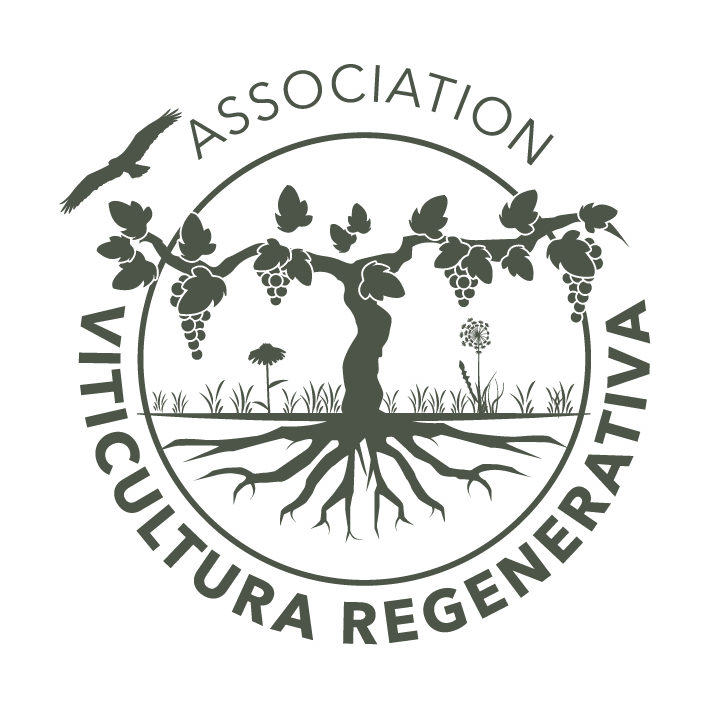Pilar Andrés: “Everything we do with the soil has enormous repercussions on environmental management
Pilar Andrés, a researcher at CREAF (Centre for Ecological Research and Forestry Applications) and an expert in soil ecology and biodiversity, participated in the 1st Regenerative Viticulture Conference held in Vilafranca del Penedès this past June. Below you'll find a summary of her talk “Soil biodiversity and the services it provides to farming”.

There is a prior history to this, beginning with Darwin and culminating with Bachelier, which concludes that soil management is essential, because the microorganisms that live in the soil are responsible for managing carbon, fertility, and the greenhouse effect. Let's not forget that more carbon resides within one square metre of soil, at a depth of three metres, than in all plant life and the entire upper atmosphere. In one gram of soil, we find several thousands of invertebrate species, a billion bacterial cells, and 200 metres of fungal hyphae. This means that everything we do with the soil has enormous repercussions on environmental management. Most importantly, this accumulation, generation, and management, not only of carbon but of soil fertility and other greenhouse gases, isn't chemical – it is carried out by the microorganisms that live in the soil.
The classic concept dictated that the environment had to be adapted to the crop. This is giving way to an integrated biological concept of adapting the crop to the environment; in other words, working with the biotic interactions between plants and the soil microorganisms that satisfy the nutritional needs of said plants. Soil biodiversity responds to the carbon content, pH level, texture and structure of the soil, and is concentrated in hotspots which constitute 1% of total soil volume. These hotspots are divided into carbon-storing aggregate surfaces, biopores, or the crucial drainage channels and rhizosphere around root networks.

During the process of photosynthesis and the carbon and nitrogen cycle, the nutrients that plants return to the soil or that animals produce do not suffice, on their own, to make soils fertile. Soils also need mineralization, and this is carried out by the likes of fungi or bacteria that transform the nutrients of the soil itself. When it comes to soil management, it is important to consider the existence of diverse groups of organisms that perform the same function to avoid the risk of extinction and be able to cope with extreme climate situations.
Within this context, the operational biocontrol of the soil itself is fundamental: microbial components that protect the plants, as well as bacteria that encourage plant growth, growth hormones, root development, and nutrient solubilization.
In explaining soil diversity in terms of vineyard management, Andrés used three comparative examples from different types of farming: minimum intensity, intense, and regenerative. The information that evaluates the biological quality of the soil has to be monitored with biological indicators. The data provided by these indicators is far more sensitive to biodiversity than chemically obtained data. Based on the data, one can conclude that there is a direct correlation between carbon sequestration and groups of micro-activity in the soil, showing different results for each of the three vineyards, with the regenerative vineyard presenting higher and better rates of activity.

